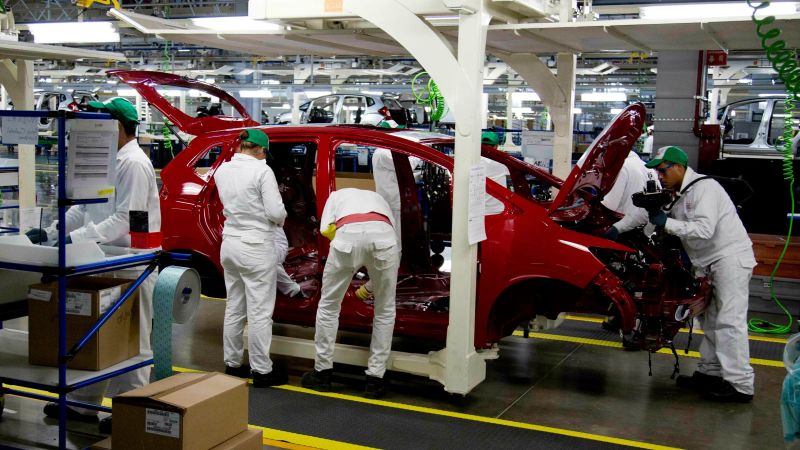
A mere nine days ago, President Donald Trump was out there on The Twitter threatening tariffs on Mexican-made goods—including cars and trucks—that would be destabilizing to the auto industry, a new North American trade agreement and American consumers. Those tariffs, Trump said, would start at 5 percent and possibly rise to 25 percent by October unless undocumented migrants “stop” coming into the U.S. through Mexico.
Well, automakers including Ford, General Motors, BMW, Honda and more can rest easy, because Trump has backed off this threat, apparently after securing some kind of deal where Mexico will work to clamp down on migration.
What does that deal entail, exactly? As Automotive News reports, we have no idea. But such tariffs were widely regarded as deeply damaging to the global economy, and ones that would surely make cars, trucks and other goods more expensive to American consumers.
Advertisement
As you may recall, Trump’s own economic advisor Larry Kudlow admitted that it’s you who will pay the cost of tariffs, as the extra cost of goods will be passed onto the consumer.
What, you think Ford and GM and the rest are just gonna happily eat the cost and call it a day? Nah. That’s not how business works.
From Automotive News:
The decision was welcomed by Republicans and others who warned the tariffs would damage the American economy, hurt job growth and delay or altogether scuttle a trade deal between the U.S., Canada and Mexico, which still needs lawmaker ratification. Mexico is the second-biggest source of U.S. imports.
“Mexico came through,” said Sen. Chuck Grassley, R-Iowa, who opposed the tariffs, in a tweet soon after Trump’s announcement.
Mexico’s foreign minister, Marcelo Ebrard, who was in the Washington for the talks, said in a tweet that the tariffs wouldn’t be imposed. “Thanks to everyone who has supported us by realizing the greatness of Mexico,” he said in Spanish.
The tariff threat has rattled markets and prompted economists to forecast an increased risk of recession in the U.S., the world’s largest economy, because trade between the U.S. and Mexico is so integrated. An all-out trade war would lower global gross domestic product by 0.8% or $800 billion by mid-2021, according to Bloomberg Economics.
Advertisement
As that story notes, while exact details on the migration plan aren’t out yet, the U.S. had asked Mexico to beef up its own northern and southern borders and begin detaining asylum-seekers. The tariff threat also came the exact same day the administration asked Congress to begin the work of passing the North American Free Trade Agreement replacement.
While it fits with Trump’s pattern of using trade as a weapon to make policy changes in other areas, the moves were met with resistance from within Trump’s own party. From the New York Times on the matter:
Economists had expressed concern that those additional costs could rebound on the American economy in unwelcome ways. While politicians often accuse companies of sending jobs to lower-priced factories in Mexico, the country also supports American jobs by providing lower-priced inputs that feed into supply chains in the United States. That enables American factories to produce goods at a price and quality that can compete with goods made in China and Europe.
Advertisement
Well, the good news is that the extra cost of everything won’t be piled onto you and me. Is everyone going to be very excited by the new deal with Mexico?
Yes, apparently. Yes.













